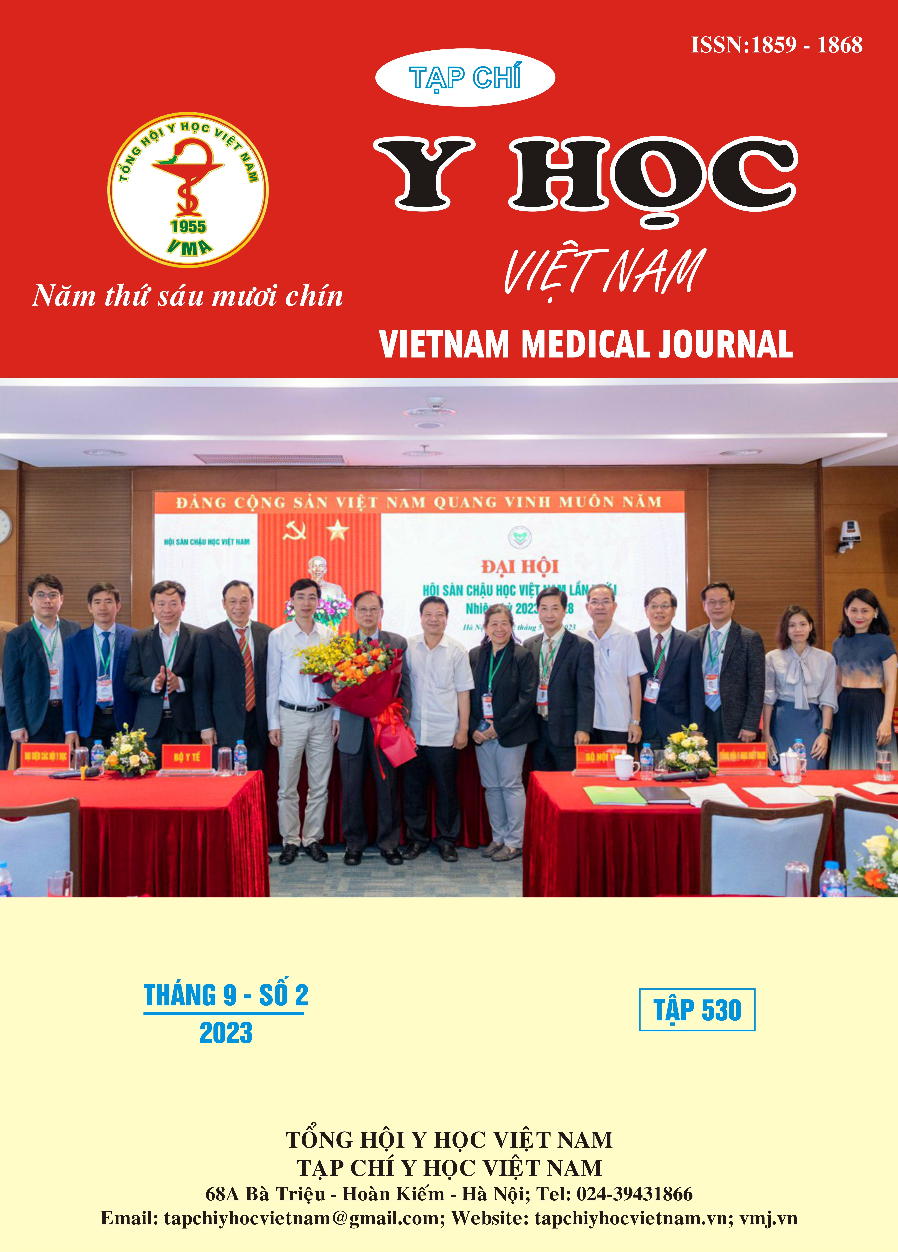SURVEY ON THE CHARACTERISTICS OF TRADITIONAL MEDICINE BODY CONSTITUTION IN PATIENTS WITH VULGARIS PSORIASIS
Main Article Content
Abstract
Objectives: Psoriasis is a prevalent chronic inflammatory skin disease, with vulgaris psoriasis accounting for most cases. Psoriasis has a negative impact on patients’ psychology and lives, but there is no specific treatment. The body constitution of traditional medicine offers the framework for disease diagnosis, treatment, and prevention, and has been demonstrated to alleviate conditions in individuals with psoriasis. This study aimed to establish the proportion of body constitution types in plaque psoriasis patients, as well as the link between body constitution types and factors connected to vulgaris psoriasis. Subjects and Methods: A standardized Constitution in Chinese Medicine Questionnaire (CCMQ) was used to interview individuals with vulgaris psoriasis for the cross-sectional investigation. Following data collection, multivariate logistic regression was used to examine the connection between constitutional classifications of traditional medicine and factors associated with vulgaris psoriasis. Results: The results of a study on 384 individuals with vulgaris psoriasis revealed that the Qi-deficiency type had the most significant rate (38.54%), followed by the Inherited-special type (25.26%), and the Qi-depression type (18.49%), the Neutral type having the lowest incidence. Phlegm-dampness type is associated with disease duration, the Yang-deficiency type, and Qi-deficiency type are associated with infection, and the Qi-depression type is associated with stress. Conclusion: According to the study’s findings, there are three body constitution types of vulgaris psoriasis in traditional medicine: Qi-deficiency, Inherited-special, and Qi-depression. In this study, Phlegm-dampness is positively correlated with disease duration, Yang-deficiency and Qi-deficiency are correlated with infection, and Qi-depression is correlated with stress.
Article Details
Keywords
constitutional types, traditional medicine, vulgaris psoriasis, trigger factor.
References
2. Di DK, Zhu QH, Qu YB, et al. Correlation between TCM constitution types and recurrence of psoriasis after influenza. Zhong Yi Lin Chuang Yan Jiu. 2020;12(09):140-142. Chinese.
3. Li XL. Exploration of the correlation of Wu Yun Liu Qi laws, clinical characteristics, and physical characteristics in patients with psoriasis vulgaris. 2021. Tianjin Zhong Yi Yao Da Xue. MA thesis. Chinese.
4. Mylonas A, Conrad C. Psoriasis: Classical vs. Paradoxical. The Yin-Yang of TNF and Type I Interferon. Frontiers in immunology. 2018 Nov 28;9:2746.
5. Takeshita J, Grewal S, Langan SM, et al. Psoriasis and comorbid diseases: Epidemiology. Journal of the American Academy of Dermatology. 2017 Mar;76(3):377-390.
6. Wong W, Lam CL, Wong VT, et al. Validation of the constitution in chinese medicine questionnaire: does the traditional chinese medicine concept of body constitution exist? Evidence-based complementary and alternative medicine: eCAM. 2013;2013:481491.
7. Zhao P. Research on the correlation between TCM constitution types and pathogenesis factors of psoriasis_syndrome differentiation. 2016. Shandong Zhong Yi Yao Da Xue, MA thesis. Chinese.


